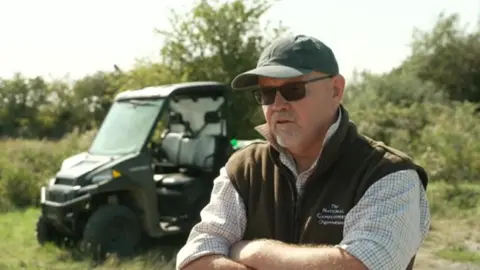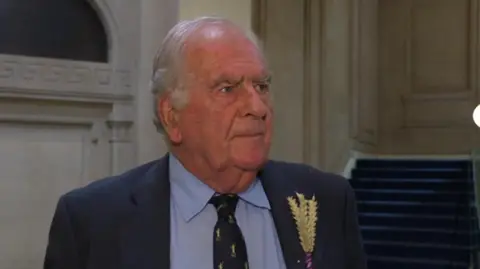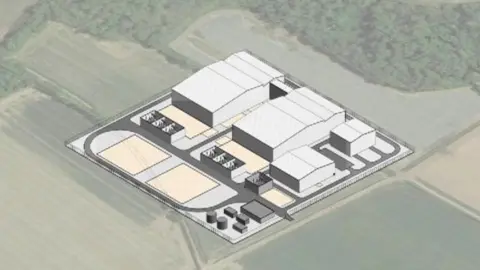Fears for wildlife over planned electricity grid
 BBC
BBC- The proposals could see a unit built in Thanet to harness electricity from wind turbines
- National Grid is planning a public consultation on the project
- Local campaigners say it could threaten a valuable habitat
- The local MP has pointed to a former power station site in north Kent as a better location
Campaigners say plans to build a unit to convert wind power into electricity in a protected area of Kent will "devastate" wildlife.
The Sea Link project would create a subsea electricity cable between Suffolk and Kent, as well as a converter station at Minster marshes.
National Grid said the project would help deliver the UK’s energy security strategy and net zero targets.
North Thanet MP Sir Roger Gale described the proposal as "not acceptable" and urged National Grid to "think again".
George Cooper, gamekeeper at Abbey Farm at Minster Marshes, said: "It’s one of the last remaining unspoiled areas of the Isle of Thanet", adding the site had nationally important birds such as turtle doves and nightingales.
"Right next to where they are building there’s drainage ditches, water voles, grass snakes, there’s common lizards, there’s brown hares, it’s just endless here.”
'Think again'
Sir Roger said he had had two meetings with the National Grid where he expressed his "outright hostility".
He suggested the transformer station be built at the derelict power station on the Isle of Grain which he said is connected to the National Grid and on a brownfield site.
"Quite simply, National Grid have got to think again, go back to the drawing board and come up with a proposal - if it is necessary at all - that is acceptable in environmental terms," he added.
"This is not acceptable."


'Mitigation measures'
National Grid stressed the plans were currently only proposals, with a public consultation still planned.
It said it was a green energy project using wind farm-generated electricity.
Stephen Mart, project director for Sea Link, said they would look at the impact the project "may" have on designated landscapes.
"We come up with mitigation measures to protect any of those impacts that we may generate," he said, adding they were also talking to Kent Wildlife Trust and Natural England.
Mr Mart also said he was "really keen" to get people's feedback.
"I understand where the concerns lie and it's one of the things we have to factor in when we come up with our routine and sighting options.
"These very big ecological concerns are very much things we take into account," he added.
Follow BBC South East on Facebook, on Twitter, and on Instagram. Send your story ideas to [email protected].
